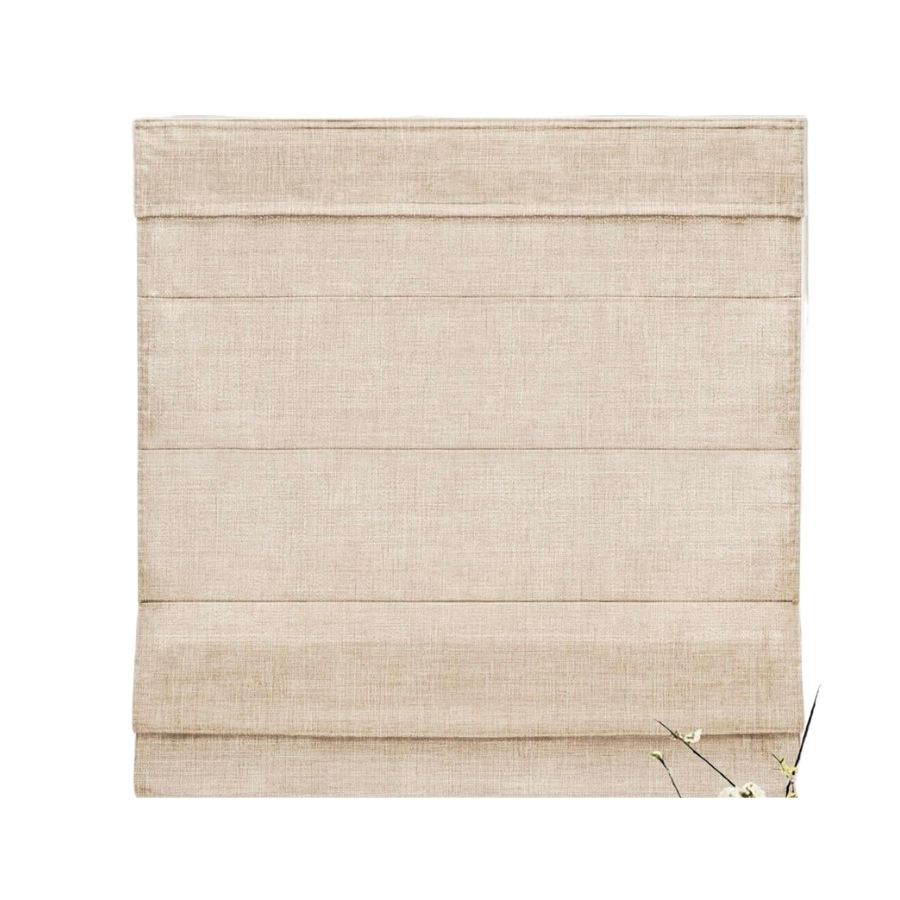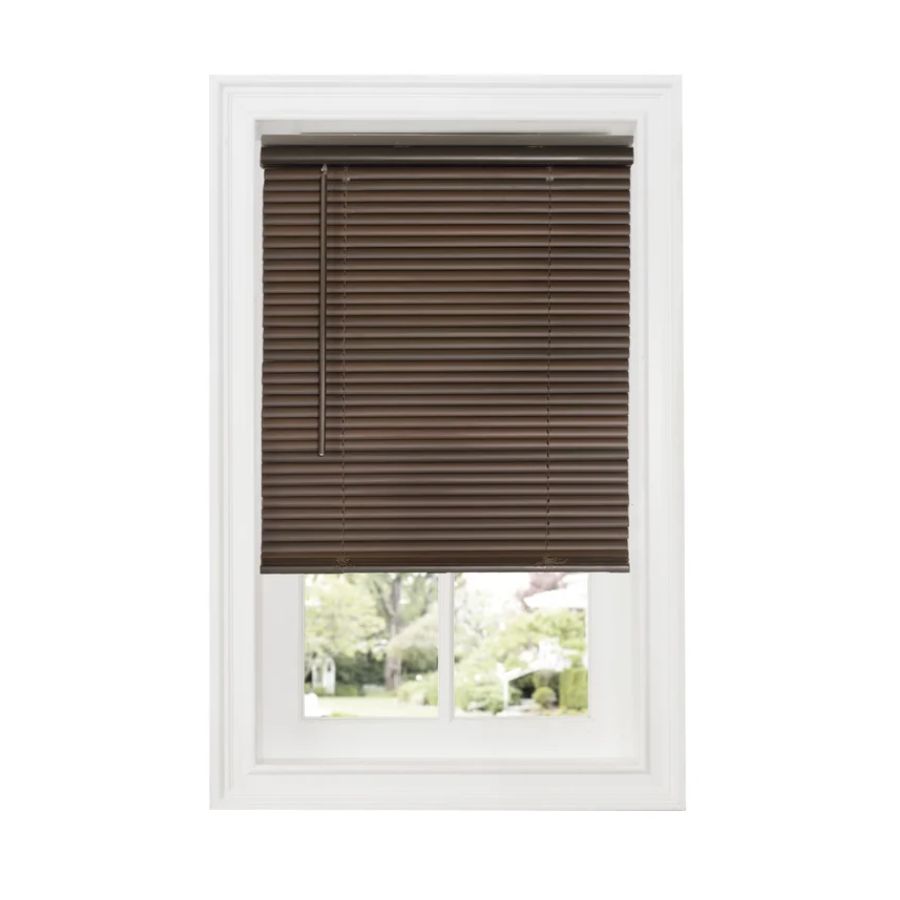How to dress a window without curtains – alternative window treatments to frame your view
From blinds to shutters, these are our favorite ways to dress a window without using curtains
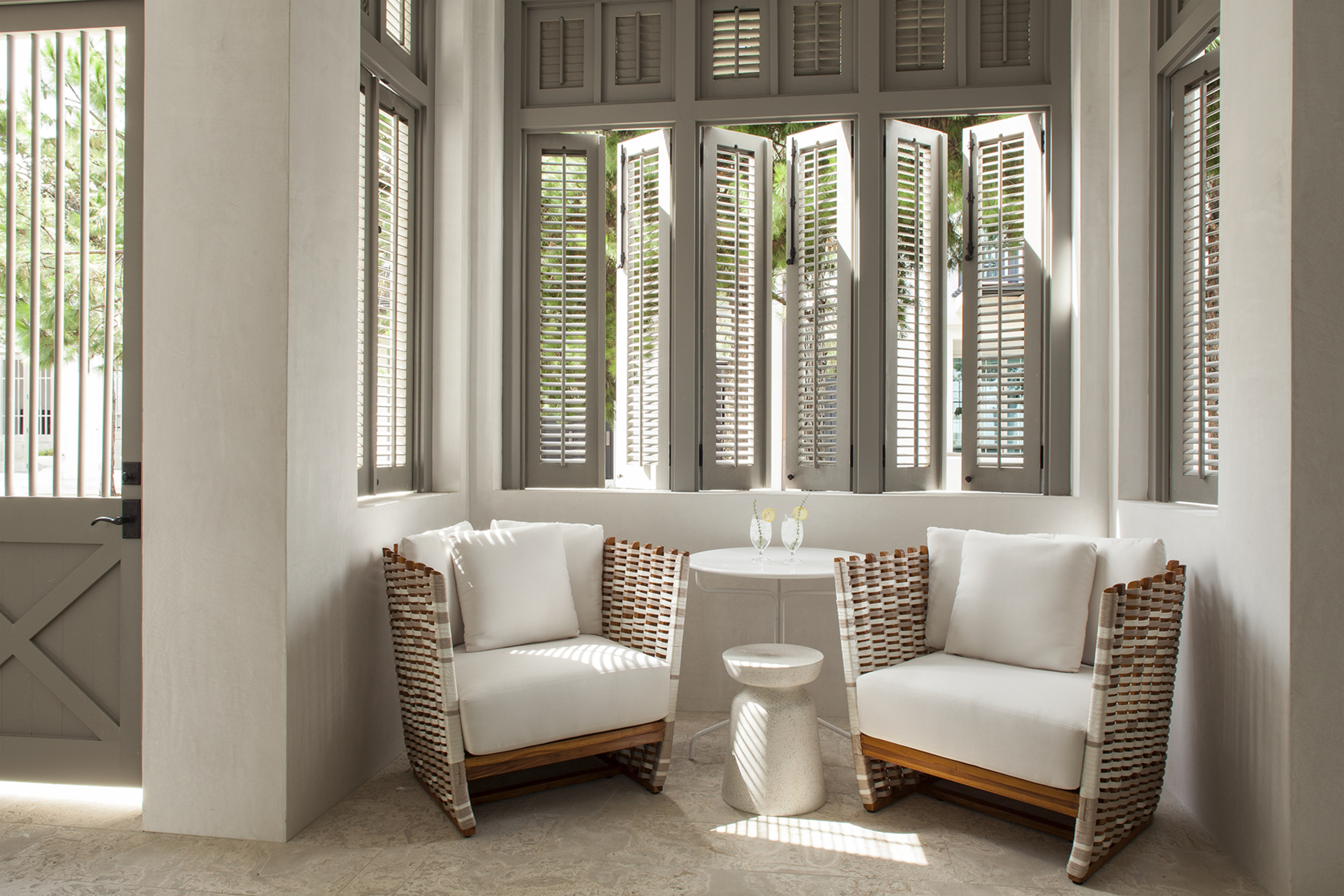

When it comes to dressing your window, the automatic response is to go for a traditional pair of curtains. Curtains are a great choice for privacy, as well as color and pattern to a room, all the while functioning as a tool for controlling light, the benefit of a good pair of curtains knows no bounds.
But there are actually so many other window treatments you might not have considered that can bring a fresh perspective to your window. Here are some other ideas for modern window treatments to freshen up your room and beautifully frame your view.
1. Cover the window with wooden shutters
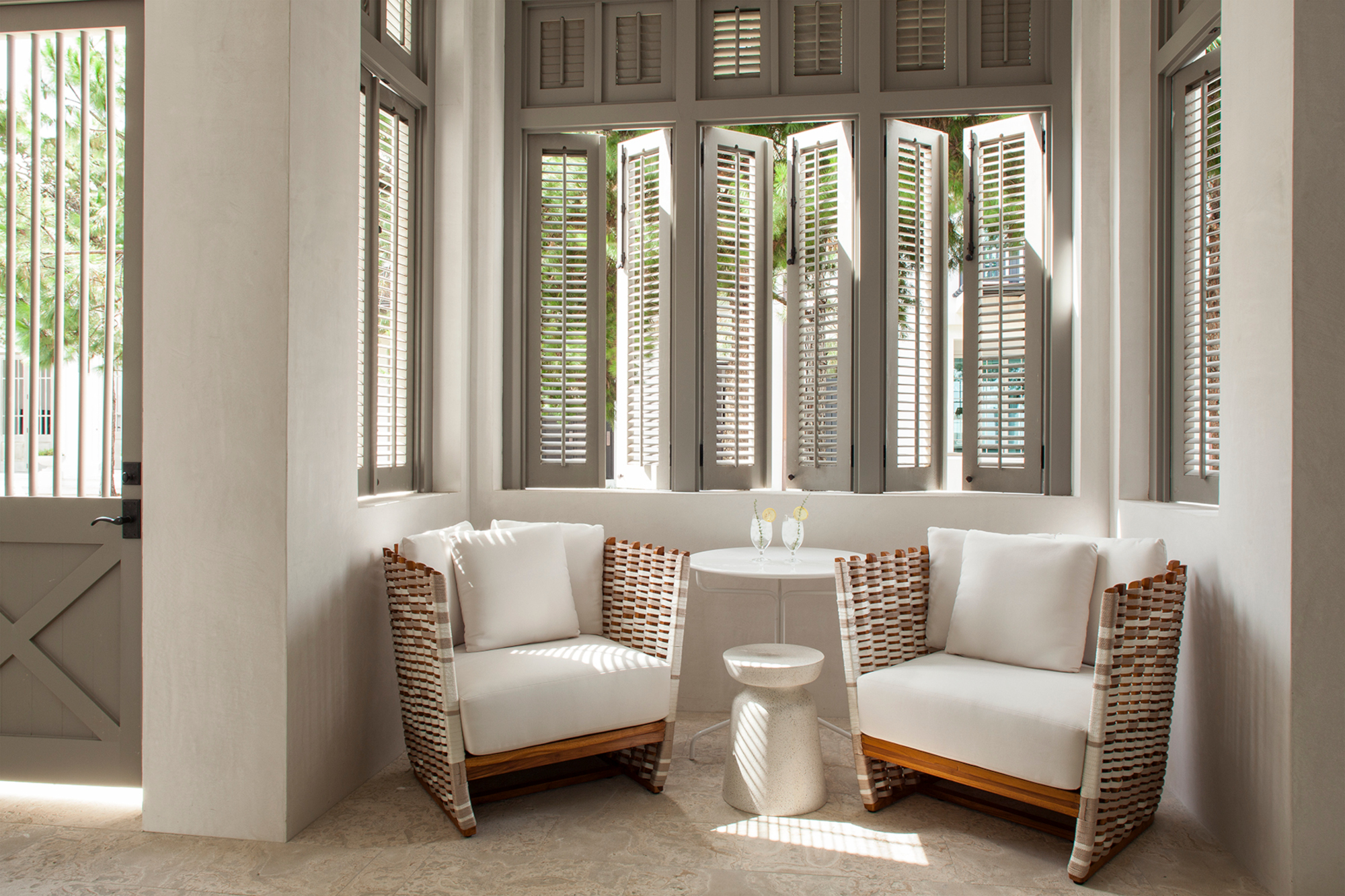
Shutters bring interest to the room, often working as a design feature in their own right, and can fully block out light, neatly folding away at the close of the day. While shutters have a traditional feel to them, used in a modern setting, they can feel cool and contemporary.
The trick is to get a shutter material that doesn't feel too heavy. Wood is near-perfect, and you can paint the shutters in a pale or muted tone, or leave them natural so you can really see the grain, bringing nature to the room. 'Shutters are really useful as they can be used for privacy without entirely blocking the light from the window as they are in two sections, which is great in living rooms,' explain Simon Graham, the designer behind this living room from YARD Architects.
'We love the look of these shutters in this beach house's exterior flex space,' says Brad Ramsey, principal and founder of Nashville-based, Brad Ramsey Interiors. 'The shutters provide privacy and protection from the nearby communal walking path and rain when closed, and the option to swing them out makes the space feel wide open.
'The best part about the shutters is the way they play with the light as it streams through. They add so much warmth and character to the space.'
2. Use a window film
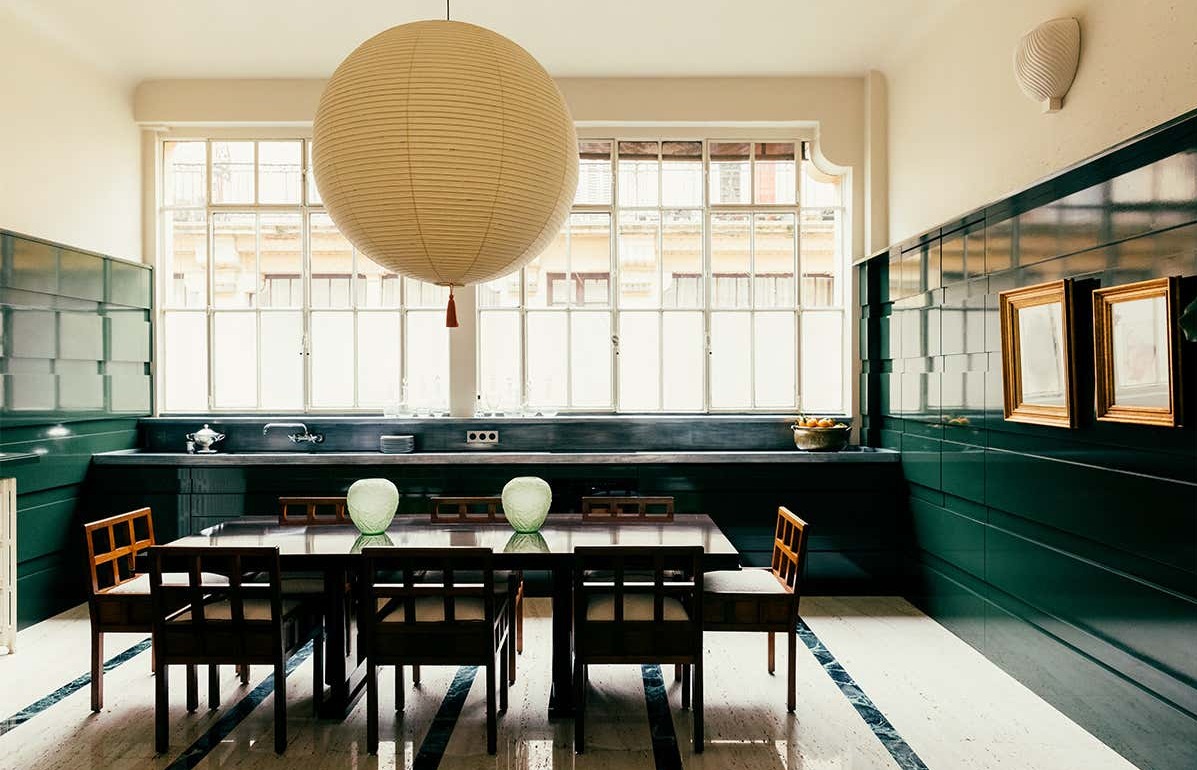
The frosted glass look has a bit of a bad reputation as dated and as being only really suitable for the bathrooms, but this elegant kitchen by Casiraghi gives it a cool and contemporary feel.
The frosted look works by obscuring the light and shape as it filters through, meaning you get privacy but it doesn't stop your room from being filled with light.
It's great for the modern bathroom, because these are spaces where damp and moisture in the air don't really work with curtains, but we're seeing it coming back throughout the home. Just how cabinets are employing the fluted and frosted look, it's a great way to turn your window into a jewel.
3. Add Roman blinds for privacy
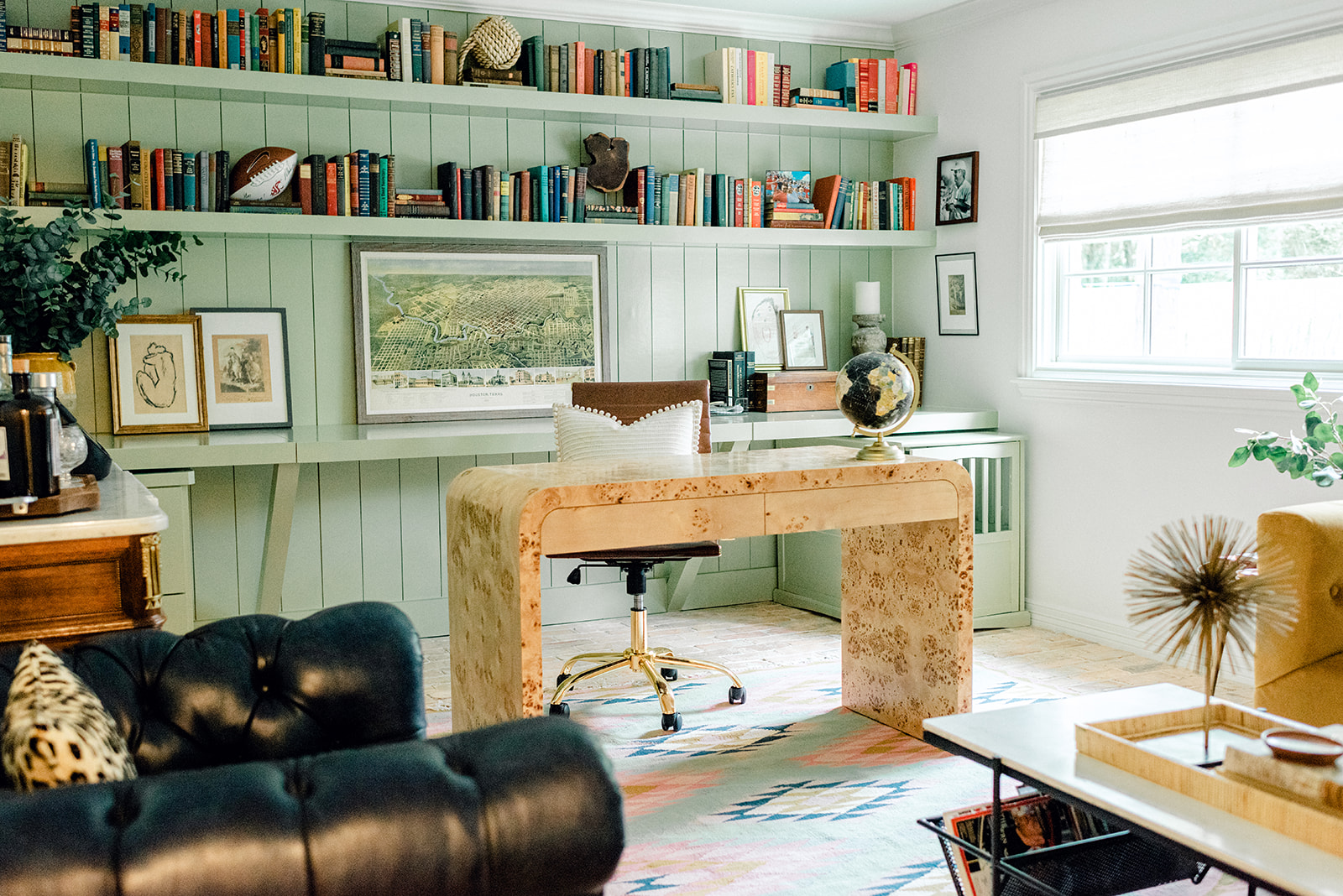
Shades are a great alternative to curtains, guaranteeing you privacy and a restriction of light, while acting as a canvas to add a splash of color or texture as a living room window treatment. 'They can be as pared-back or extravagant as you like,’ says designer and founder of the eponymous textile brand, Tori Murphy. ‘Go for an understated striped blind or cotton blinds, which can be just enough to add privacy and add that soft touch that might be needed, particularly in a bathroom.'
'Roman shades add privacy as well as texture, making a great alternative to full curtains,' recommends Kristina Phillips of Kristina Phillips Interior Design. Roman shades have a distinct pleated look that help add extra texture and fabric. With a simple pull of the cord, you can adjust the blind level up or down and the mechanism creates a pleasing cascading look.
'Shades were selected in this space to provide shade coverage and privacy when needed, but blended in well without drawing the eye away from the other dynamic color and details in the room,' explains Mimi Meacham who designed this room.
4. Or a Venetian shade
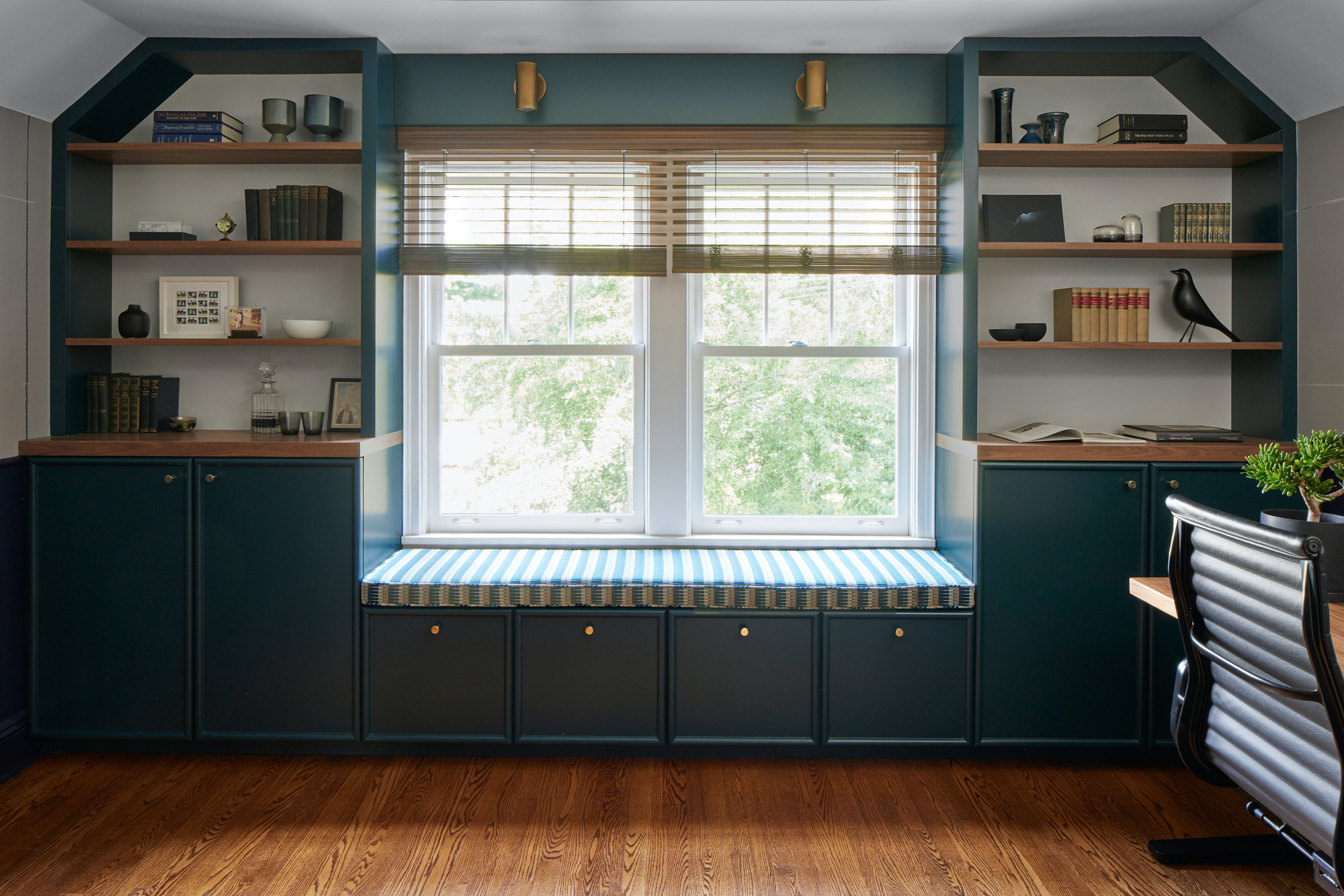
Venetian shades have a slightly different aesthetic to Roman blinds. Window coverings are made of material like wood, aluminium or plastic as opposed to one sheet fabric, so they might bring a more formal feel that wouldn't look out of place in a home office. Slats are located one above another and held together with a cord that can easily open and close the blinds, revealing the view beyond. They offer a similar aesthetic to window shutters, but in a softer way and bring full privacy and help control light and dark.
5. Or leave them undressed
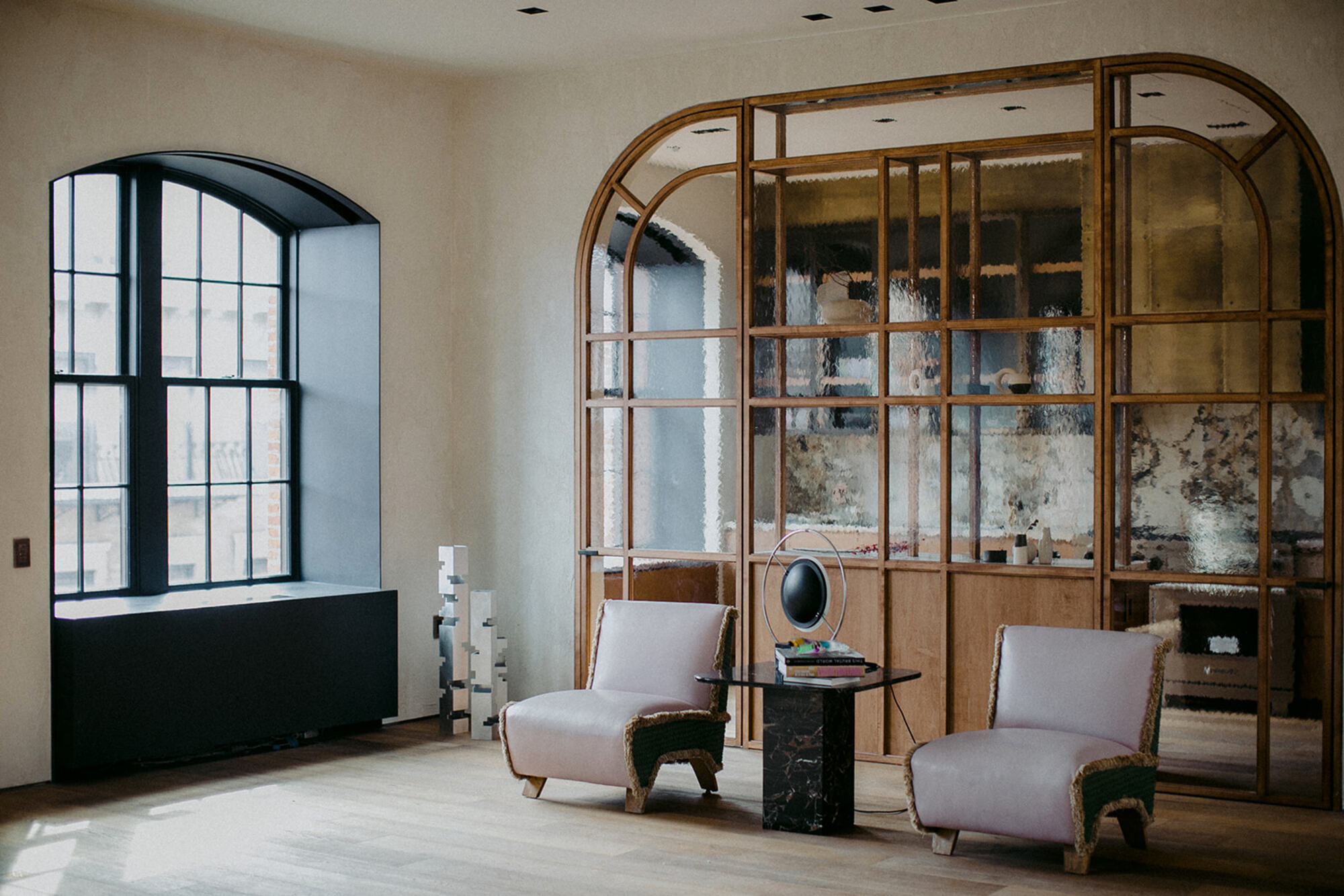
A well-dressed window doesn't necessarily mean a window treatment. Instead of curtains, embrace your window trim and go bold. The best trim colors are dark and bold, something that outlines the shape, working especially well if you have an interesting window shape to play with. You can also play with different material to highlight the view and create your focal point, like this example from Crina Architecture, in this apartment in downtown New York where the trim is a real feature.
'Upon entrance, one sees a row of arched windows reminiscent of the old factory buildings of downtown New York. They are now ensconced in metal, leaning the view towards a magnificent interior courtyard. Its dark presence creates a sense of wonder and curiosity.'
Be The First To Know
The Livingetc newsletters are your inside source for what’s shaping interiors now - and what’s next. Discover trend forecasts, smart style ideas, and curated shopping inspiration that brings design to life. Subscribe today and stay ahead of the curve.

Former content editor at Livingetc.com, Oonagh is an expert at spotting the interior trends that are making waves in the design world. She has written a mix of everything from home tours to news, long-form features to design idea pieces, as well as having frequently been featured in the monthly print magazine. She is the go-to for design advice in the home. Previously, she worked on a London property title, producing long-read interiors features, style pages and conducting interviews with a range of famous faces from the UK interiors scene, from Kit Kemp to Robert Kime. In doing so, she has developed a keen interest in London's historical architecture and the city's distinct tastemakers paving the way in the world of interiors.
-
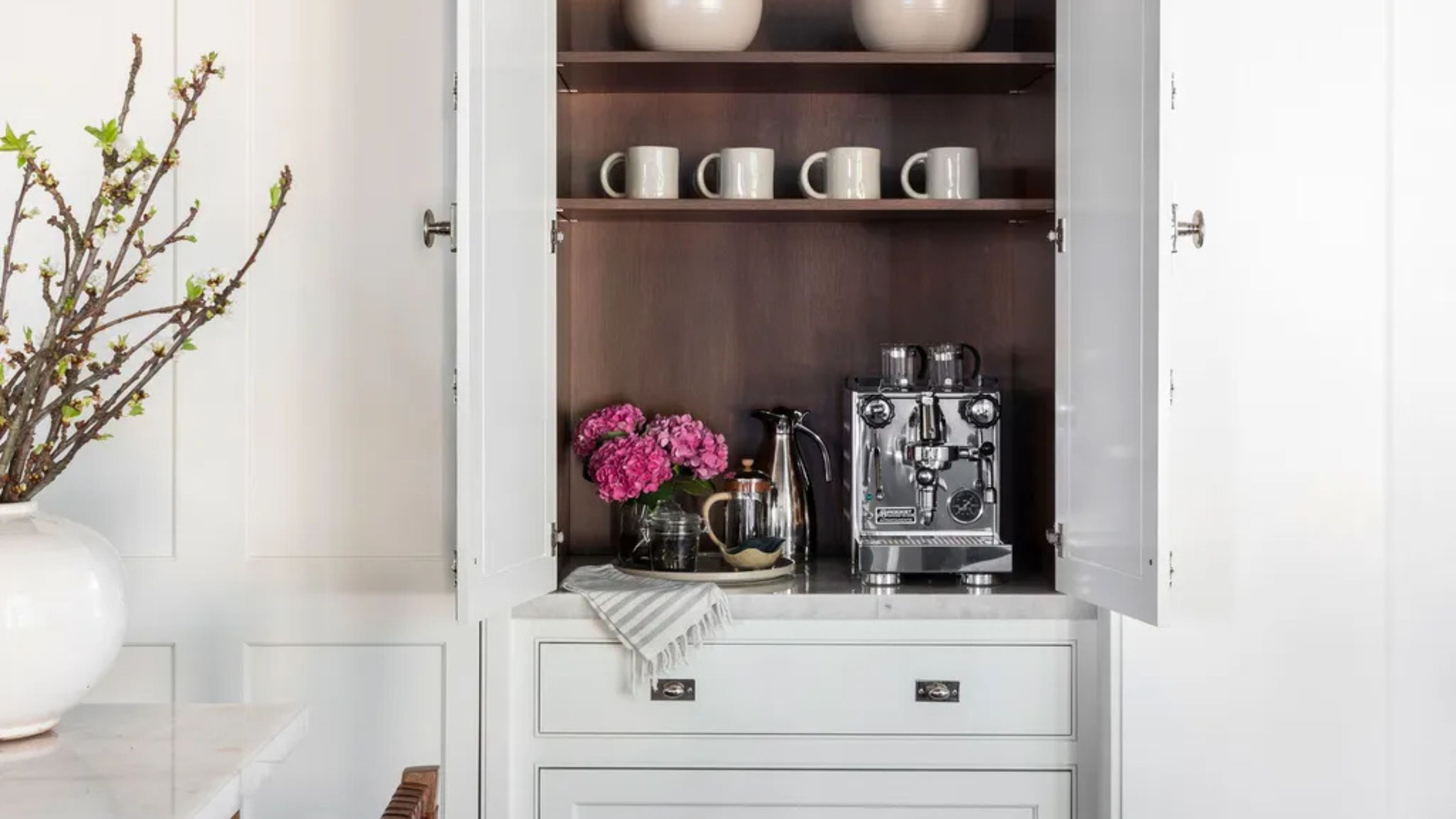 Turns Out the Coolest New Café is Actually In Your Kitchen — Here's How to Steal the Style of TikTok's Latest Trend
Turns Out the Coolest New Café is Actually In Your Kitchen — Here's How to Steal the Style of TikTok's Latest TrendGoodbye, over-priced lattes. Hello, home-brewed coffee with friends. TikTok's 'Home Cafe' trend brings stylish cafe culture into the comfort of your own home
By Devin Toolen Published
-
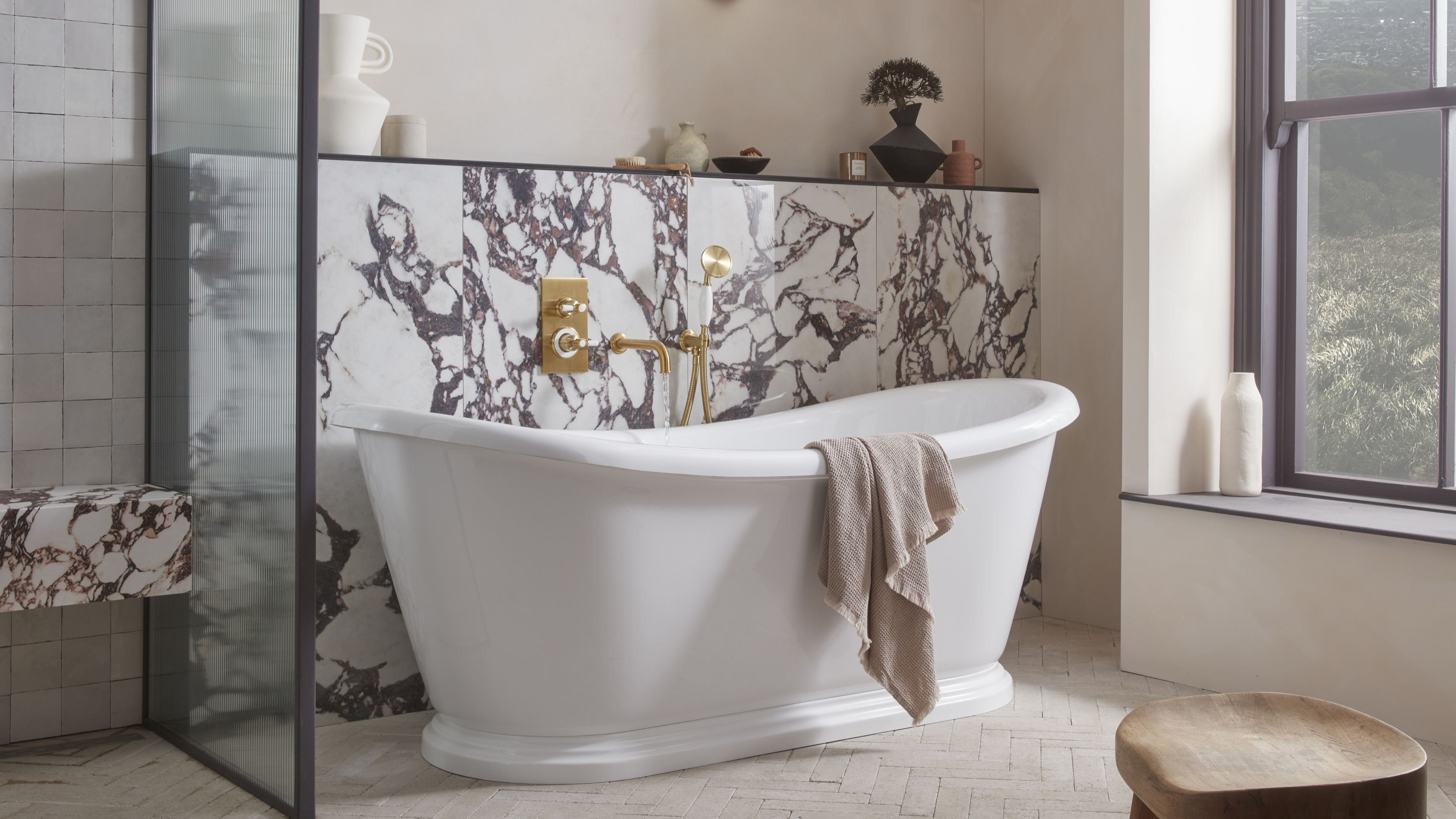 5 Bathroom Layouts That Look Dated in 2025 — Plus the Alternatives Designers Use Instead for a More Contemporary Space
5 Bathroom Layouts That Look Dated in 2025 — Plus the Alternatives Designers Use Instead for a More Contemporary SpaceFor a bathroom that feels in line with the times, avoid these layouts and be more intentional with the placement and positioning of your features and fixtures
By Lilith Hudson Published
